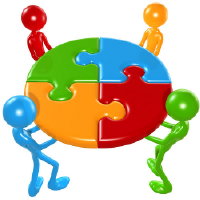“Madness of Crowds” or “Wisdom of Groups”?

Co-authored by MIT’s Thomas W. Malone, Alexander Pentland, and Nada Hashmi, along with Anita Williams Woolley of Carnegie-Mellon and Christopher F. Chabris of Union College, the Science story details two studies about how groups perform.
The researchers concluded that “group intelligence” correlates less with the intelligence of the individuals and more with the social sensitivity of group members, an equality in how conversation is handled, and even the proportion of females in the group.
A Boston Globe story last month, “Group IQ,” picked up on the Science report and added a few interesting details. “People have been studying group dynamics for decades, seeing crowds variously as sources of madness and wisdom,” writes the Globe’s Carolyn Y. Johnson. “[Senior author of the study] Malone and colleagues could not find an example in which people had asked the relatively simple question of whether groups had intelligence, the same way individual people do.”
Why has that question not been asked before? Why is it difficult to think of a group as having a measurable intelligence?
“Intuitively, we still attribute too much to individuals and not enough to groups,” Malone told the Globe. “Part of that may just be that it’s simpler; it’s simpler to say the success of a company depended on the CEO for good or bad, but in reality the success of a company depends on a whole lot more. Essentially what’s happening as our society becomes more advanced and more developed is that more things are done by groups of people than by individuals. In a certain sense, our intuitions about how that works haven’t caught up with the reality of modern life.”
Iain Couzin, an assistant professor of ecology and evolutionary biology at Princeton University, told the Globe, “It’s kind of staggering, it’s 2010 and we’re only beginning to realize what look in this paper to be very strong effects. . . I run a relatively large lab, and I was thinking reading this paper about how I could make my lab more effective.�

Comments (4)
Joanne Celens
mnulfateh
The Collective Intelligence of Groups
Michelle James